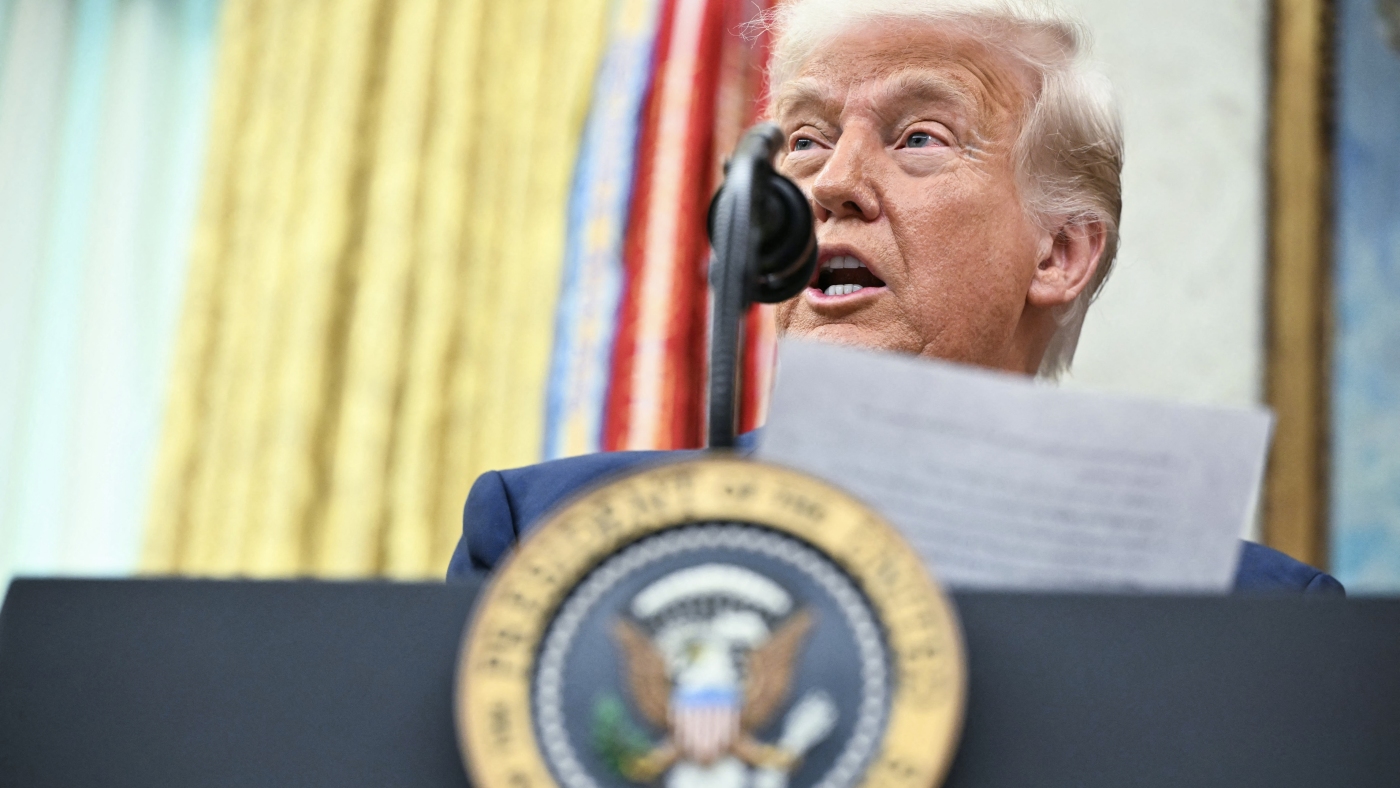Are Trump's military picks based on merit or loyalty?

Chairman of the Joint Chiefs of Staff General Charles Brown Jr. listens to U.S. Secretary of Defense Pete Hegseth answer reporters' questions before a meeting with Israeli Prime Minister Benjamin Netanyahu earlier this month. Chip Somodevilla/Getty Images hide caption
toggle caption
Chip Somodevilla/Getty Images

Chairman of the Joint Chiefs of Staff General Charles Brown Jr. listens to U.S. Secretary of Defense Pete Hegseth answer reporters' questions before a meeting with Israeli Prime Minister Benjamin Netanyahu earlier this month.
Chip Somodevilla/Getty Images
On Friday, Donald Trump fired Chairman of the Joint Chief's of Staff CQ Brown, along with several other top Pentagon officials.
Now, Senator Jack Reed, a Democrat from Rhode Island, has a question for the man tapped to succeed him, Retired Air Force Lieutenant General Dan Caine.
Quote — "will he have the ability to speak truth to power?"
Senator Reed is the top democrat on the Armed Services Committee.
The Trump administration says it wants a military built on meritocracy. Critics say it's building one governed by political loyalty.
For sponsor-free episodes of Consider This, sign up for Consider This+ via Apple Podcasts or at plus.npr.org.
Email us at [email protected].
This episode was produced by Jason Fuller and Connor Donevan. It was edited by Courtney Dorning and Nadia Lancy. Our audio engineer is Ted Mebane. Our executive producer is Sami Yenigun.

 1 month ago
24
1 month ago
24











































